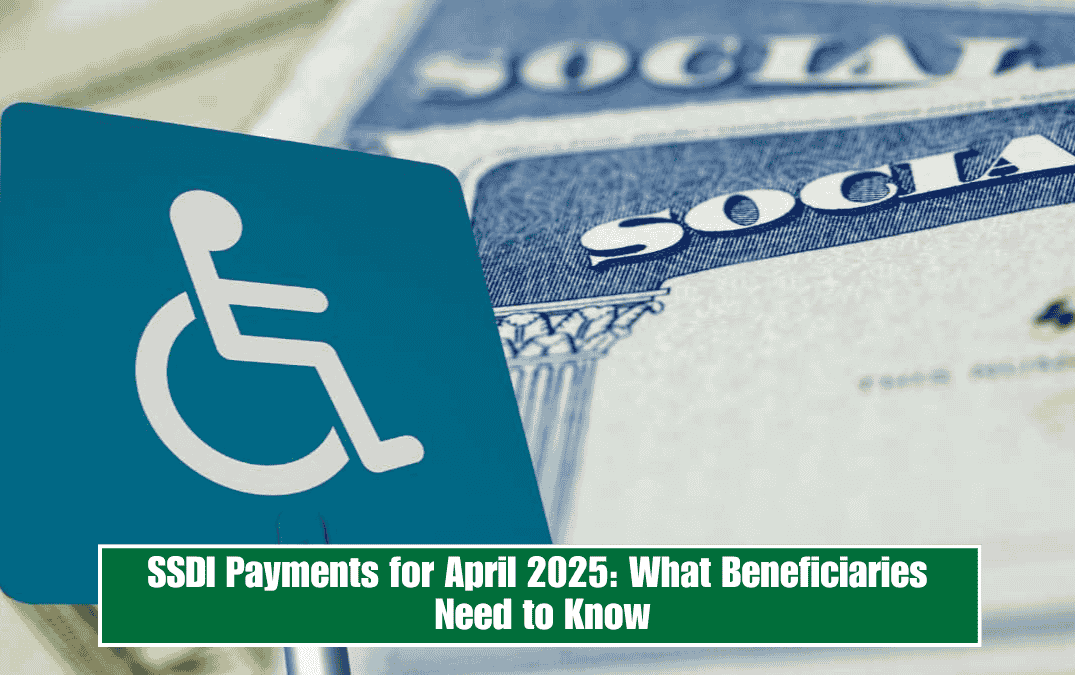Social Security Update April 2025: What the New Benefit Changes Mean for Retirees and Public Workers
The latest updates to Social Security have brought both relief and concern for millions of Americans. Congress has passed the Social Security Fairness Act, introducing key changes that include a cost-of-living increase and the repeal of two long-criticized rules. While these updates aim to improve fairness and financial stability for retirees and public service workers, they also raise important questions about the long-term health of the Social Security system.
What Has Changed in Social Security for 2025?
Congress recently passed a new law known as the Social Security Fairness Act. This legislation includes two major updates:
- Repeal of Windfall Elimination Provision (WEP)
- Repeal of Government Pension Offset (GPO)
These two rules had previously reduced or eliminated Social Security benefits for many public workers like teachers, police officers, and firefighters who also received pensions from non-Social Security-covered jobs. The repeal now restores full Social Security benefits to nearly 3 million retirees, improving fairness for workers who had been penalized for their public service.
Cost-of-Living Adjustment (COLA) for 2025
Another major change is the 2.5% Cost-of-Living Adjustment (COLA) that starts in January 2025. This increase is designed to help retirees and other beneficiaries keep up with inflation.
- Before COLA: Average monthly benefit was $1,928
- After COLA: Average monthly benefit will be $1,976
- Monthly Increase: About $48
For example, someone receiving $2,000 a month will now get $2,050, which adds up to an extra $600 per year. While the increase helps, it may be partly reduced by rising Medicare Part B premiums, which are expected to go up from $174.70 to $185 per month.
Why These Changes Matter
1. Relief for Public Service Workers
The repeal of WEP and GPO is a major win for public servants. Many of them had seen their Social Security benefits cut unfairly despite years of service. This change brings long-overdue fairness and financial relief to people who served their communities.
2. Protection Against Inflation
With rising prices for food, energy, and healthcare, the COLA adjustment helps people on fixed incomes maintain their buying power. Though modest, the 2.5% increase helps offset daily living costs that continue to climb.
3. Long-Term Concerns About Social Security
While the changes offer short-term benefits, they also raise concerns:
- The repeal of WEP and GPO will add about $195 billion to the federal deficit over the next 10 years.
- Experts warn this could speed up the insolvency of the Social Security Trust Fund, which may run out by 2033 if no further changes are made.
How You Can Prepare for the Future
Stay Informed
Follow updates from trusted sources like the official Social Security Administration (SSA) website. Understanding what each change means for you helps with better planning.
Budget for Healthcare Costs
With Medicare premiums rising, it’s smart to use part of your benefit increase to cover the added healthcare expenses. You may also want to explore supplemental insurance plans.
Save and Invest When Possible
If you’re still working or receiving benefits, consider putting some money aside to prepare for future changes, especially if Social Security reforms are introduced in the next few years.
Track Your Benefits Online
Sign up for a My Social Security Account to check your payment history, monitor changes, and get future benefit estimates. Keeping your information up to date helps avoid delays and surprises.
The April 2025 Social Security update brings important and much-needed changes, especially for public service workers who were unfairly impacted by past rules.
The benefit increase through the COLA helps retirees cope with rising living costs, but rising Medicare premiums and future concerns about Social Security funding mean beneficiaries must stay alert and plan ahead. While this update offers relief today, smart financial planning will help protect your future income as the system continues to evolve.















